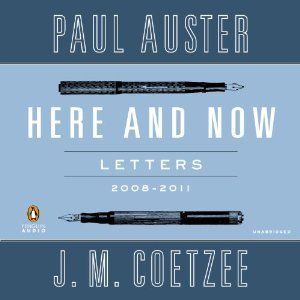
The Invention of Solitude
Book Description
In a world where silence can speak louder than words, a man's journey through solitude unveils the haunting complexities of existence. As he grapples with loss, memory, and the nuances of fatherhood, every page drips with tension and introspection. The boundaries between reality and imagination blur, revealing a haunting landscape of loneliness that resonates deeply. With each revelation, the weight of secrets and the search for connection become palpable. What truths lie hidden in the quiet corners of the soul, waiting to be unearthed?
Quick Book Summary
In "The Invention of Solitude," Paul Auster turns inward after the sudden death of his father, exploring the depths of grief, memory, and the delicate ties that bind generations. The memoir is divided into two parts: the first recounts the enigmatic life and emotional remoteness of Auster's father, while the second is a meditation on solitude, fatherhood, and the act of writing itself. Through poetic introspection and literary references, Auster seeks to make sense of his father’s legacy and his own confrontation with solitude. The narrative blurs fact and imagination, bringing to light the profound impact absence and memory have on identity. Auster’s journey reveals that in the silent spaces between people and memories, one can discover both isolation and unexpected connection.
Summary of Key Ideas
Table of Contents
The Complexity of Father-Son Relationships
The book opens in the immediate aftermath of Auster’s father’s sudden death—an event that prompts the author to reflect deeply on the man’s life and the nature of their relationship. Auster unpacks the peculiar emotional distance that characterized his father, examining old family tragedies and secrets that may have shaped this detachment. As he sifts through the remnants of his father’s life, Auster is struck by the gaps—moments never spoken of, feelings never expressed—which begin to define the profound solitude at the heart of their relationship.
The Nature of Memory and Identity
Auster’s exploration soon transforms into a broader meditation on memory. He discovers that recollection is unstable, shaped as much by imagination as by fact. The absence of his father becomes a presence in his life, compelling him to re-evaluate his own identity and role as a son and a father. Through literary allusions, Auster emphasizes how memory is both creative and unreliable, constructing the stories that give shape to one’s personal history, yet always leaving something essential unrecalled.
Solitude as Both Burden and Inspiration
The theme of solitude emerges powerfully. For Auster, solitude holds both pain and potential. It can be a heavy and isolating burden, yet it is also the crucible from which creativity is born. Writing becomes not only a way to memorialize his father, but also a method for Auster to examine his inner world and to confront his own experiences of isolation, the walls built between family members, and the struggle to achieve genuine intimacy.
The Interplay Between Reality and Imagination
Auster also explores the boundaries between reality and imagination. The memoir resists clear separation between factual remembrance and fictional invention. As he writes, the process itself becomes an act of creation, demonstrating how storytelling is necessary for making sense of loss and forging connections with both the living and the dead. This blurring of lines underscores the human need to invent meaning, especially when faced with the inscrutable gaps left by those who are gone.
The Search for Meaning in Absence
Ultimately, "The Invention of Solitude" is as much about searching for connection as it is about loneliness or absence. In tracing the contours of his own solitude—and that of his father—Auster uncovers a universal yearning for understanding. Amid silence and secrets, he hints that meaning can be found not just in what is spoken or remembered, but also in what is withheld or forgotten. This profound work invites readers into its quiet depths, urging them to reckon with their own memories, silences, and the fragile but enduring bridges between us all.
Download This Summary
Get a free PDF of this summary instantly — no email required.





